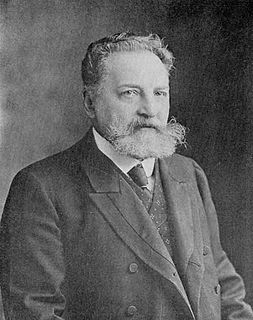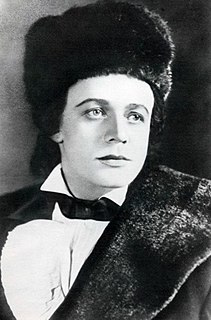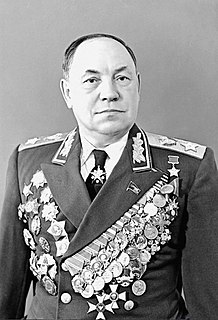 W
WFyodor Dmitrievich Batyushkov was a Russian philologist, editor, literary critic, theatre and literary historian.
 W
WSpiridon Dmitryevich Drozhzhin was a Russian/Soviet poet.
 W
WPyotr Mikhailovich Filatov was a Red Army lieutenant general. A veteran of World War I, Filatov rose to brigade command during the Russian Civil War and was decorated for his actions. He held division command in the 1920s and 1930s between military education and served as a corps commander and deputy commander of an army and a front in the late 1930s. Shortly before the beginning of Operation Barbarossa in June 1941, he became commander of the 13th Army in Belarus, which suffered heavy losses in the opening weeks of the war. He was mortally wounded in an air raid on 8 July and died a week later.
 W
WTerty Ivanovich Filippov was a Russian folklorist, singer, pedagogue, the Honorary member of the Saint Petersburg Academy of Sciences. As a journalist, Filippov contributed mostly to Pogodin's Moskvityanin, Katkov's Russky Vestnik and Russkaya Beseda, the magazine he was a co-founder of. In 1857–1864 Filippov served as a Russian Orthodox Church official. In 1889–1899 he was the Chairman of the Russian State Control committee. He was awarded Serbian Order of Saint Sava and Order of the Cross of Takovo.
 W
WVladimir Rostislavovich Gardin was a pioneering Russian film director and actor who strove to raise the artistic level of Russian cinema.
 W
WMikhail Mikhailovich Gromov was a Russian and Soviet military aviator, test pilot, researcher, and Hero of the Soviet Union.
 W
WNikolai Ivanovich Gusev was a Soviet Army colonel general.
 W
WVice Admiral Vladimir Alexeyevich Kornilov was a Russian naval officer who took part in the Crimean War.
 W
WSerge Alexandrovich Koussevitzky was a Russian-born conductor, composer and double-bassist, known for his long tenure as music director of the Boston Symphony Orchestra from 1924 to 1949.
 W
WSergei Nikiforovich Kruglov was the Minister of Internal Affairs of the Soviet Union from December 1945 to March 1953 and again from June 1953 until January 1956. He held the military rank of Colonel General. He was involved in several brutal actions of the Soviet security forces. These actions occurred in the 1940s and were carried out alongside his comrade-in-arms General Ivan Serov.
 W
WSergei Yakovlevich Lemeshev was one of the most well-known and beloved Russian operatic lyric tenors.
 W
WStepan Ilyich Oborin was a Red Army major general. Oborin served as a gunner in the Imperial Russian Army in World War I and subsequently joined the Red Army. He fought in the Russian Civil War and became an artillery officer. He led the artillery of the 19th Rifle Corps in the Winter War. After the end of the war he became commander of the 136th Rifle Division and then the 14th Mechanized Corps. The corps was destroyed in the Battle of Białystok–Minsk after the German invasion of the Soviet Union. Oborin was wounded during the battle and flew back to Moscow for treatment. He was arrested for desertion, sentenced to death and shot on 16 October 1941. Oborin was posthumously rehabilitated in 1957.
 W
WVladimir Afanasyevich Obruchev was a Russian and Soviet geologist who specialized in the study of Siberia and Central Asia. He was also one of the first Russian science fiction authors.
 W
WAlexander Nikolayevich Samokhvalov was a Soviet Russian painter, watercolorist, graphic artist, illustrator, art teacher and Honored Arts Worker of the RSFSR, who lived and worked in Leningrad. He was a member of the Leningrad branch of Union of Artists of Russian Federation, and was regarded as one of the founders and brightest representatives of the Leningrad school of painting, most famous for his genre and portrait painting.
 W
WSchema-Igumen John, canonized as St. John of Valamo, was a monk in both Old Valamo and New Valamo and the head of the Petsamo Monastery. Some of his letters, containing many pieces of spiritual have been published in English in a book called Christ In Our Midst. Letters from a Russian Monk.
 W
WVyacheslav Yakovlevich Shishkov was a Soviet and Russian writer known for his descriptions of Siberia. He was awarded the Stalin Prize posthumously (1946).
 W
WArseny Ivanovich Vvedensky was a Russian literary critic and historian, essayist and author of feuilletons, which he published in Golos, using the pseudonym Aristarkhov.
 W
WIvan Alekseyevich Vyshnegradsky was a Russian priest, and scientist who specialized in mechanics. He also served as the Russian Finance minister from 1887 to 1892.
 W
WIvan Yegorovich Zabelin was a Russian historian and archaeologist with a Slavophile bent who helped establish the National History Museum on Red Square and presided over this institution until 1906. He was the foremost authority on the history of the city of Moscow and a key figure in the 19th-century Russian Romantic Nationalism.
 W
WMatvei Vasilevich Zakharov was Marshal of the Soviet Union, Chief of the General Staff, Deputy Defense Minister.
 W
WPavel Fedorovich Zhigarev was the commander-in-chief of the Soviet Air Forces (VVS) twice, and also served as the Chief Marshal of Aviation from 1955–59.